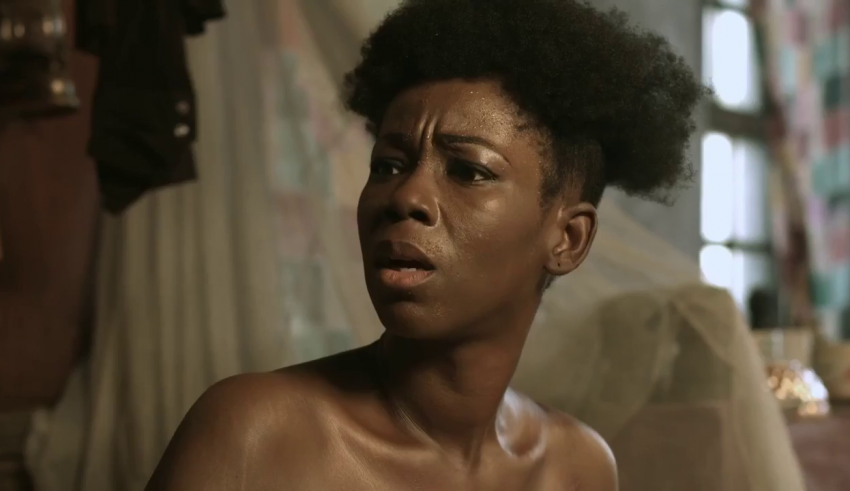
When Leila Djansi released the 2010 emotionally lucid thriller ‘Sinking Sands’, critics were very much inclined to the idea that its lead actress, Ama K. Abebrese was a promising performer, whose future works would engineer much credibility to the African Movie Industry. The film focused on the distorted relationship between Pabi (Ama) and Jimah (Jimmy Jean-Louis), who experience a scar in their marriage life after a domestic incident leaves Pabi deformed physically and mentally.
At the back of the movie’s box office success, Ama received the best actress in a lead role trophy at the 2011 Africa Movie Academy Awards, beating Nollywood giant Genevieve Nnaji (Tango with Me).
Yet still, the local industry Ghana, was preaching a different sermon to the choir. It failed twice in a row at awarding her excellence.
At the 2010 Ghana Movie Awards, Abebrese’s steady performance in ‘Sinking Sands’ was overlooked in the winner’s envelope despite a well-deserved nomination. A year on after the snub, the GMAs once again did her craft a disservice by nominating her in the best discovery category for ‘Ties that Bind’. The absurd decision of the GMA board to nominate an AMAA winning actress in a discovery category meant for fresh performers remains one of the industry’s unwelcomed choices to date.
Abreast with the industry’s portfolio at awarding popular names rather genuine performers, Abebrese shopped her mastered talent to outside productions that provided her a safety net to transform into characters not available to play on the local scenes.
In 2015, she starred in the Netflix original film ‘Beast of No Nation’ alongside Hollywood favourite Idris Elba and child actor Abraham Attah. Abebrese’s role in the film makes her one of the first crop of Ghanaian actors to star in a project commissioned by the streaming platform.
Levelling things up on local assignments, Abebrese engaged herself in projects curated for a global audience. With Nana Obiri Yeboah’s ‘The Cursed Ones’, which reunited her with her ‘Sinking Sands’ husband Jimmy, Abebrese made quite a number of international appearances as the film made it into the good books of the Canada International Film Festival and the Atlanta Film Festival.
Riding high on the front side of the camera, the award-winning actress branched into producing with Blitz Bazawule’s directed film ‘The Burial of Kojo’, which she starred in as a narrator, while producing alongside Bazawule and Kwaku Obeng Boateng.
Ava DuVernay’s company Array Now acquired distribution rights to the film after it had a worldwide premiere at the AMC Empire Theatre in Times Square, New York City, as part of the Urban World Film Festival presented by HBO.
Few months later, it was released on Netflix, making it the first Ghanaian film to premiere in selected countries worldwide on Netflix. In another first feature, the film was the first Ghanaian film submitted for a possible Golden Globe nomination in the best foreign language category as well as best director – motion picture for Bazawule in 2020.
Gussied up for more international ground breakings, Abebrese’s other film ‘Azali’ was in the same year submitted as Ghana’s first entry for an Academy Award nomination in the best international film category.
Although both films failed to receive final nominations on both stages, they marked a turning moment for the Ghana Movie Industry. They placed a standardized filter on the local industry – ranging from storyline to directing.









